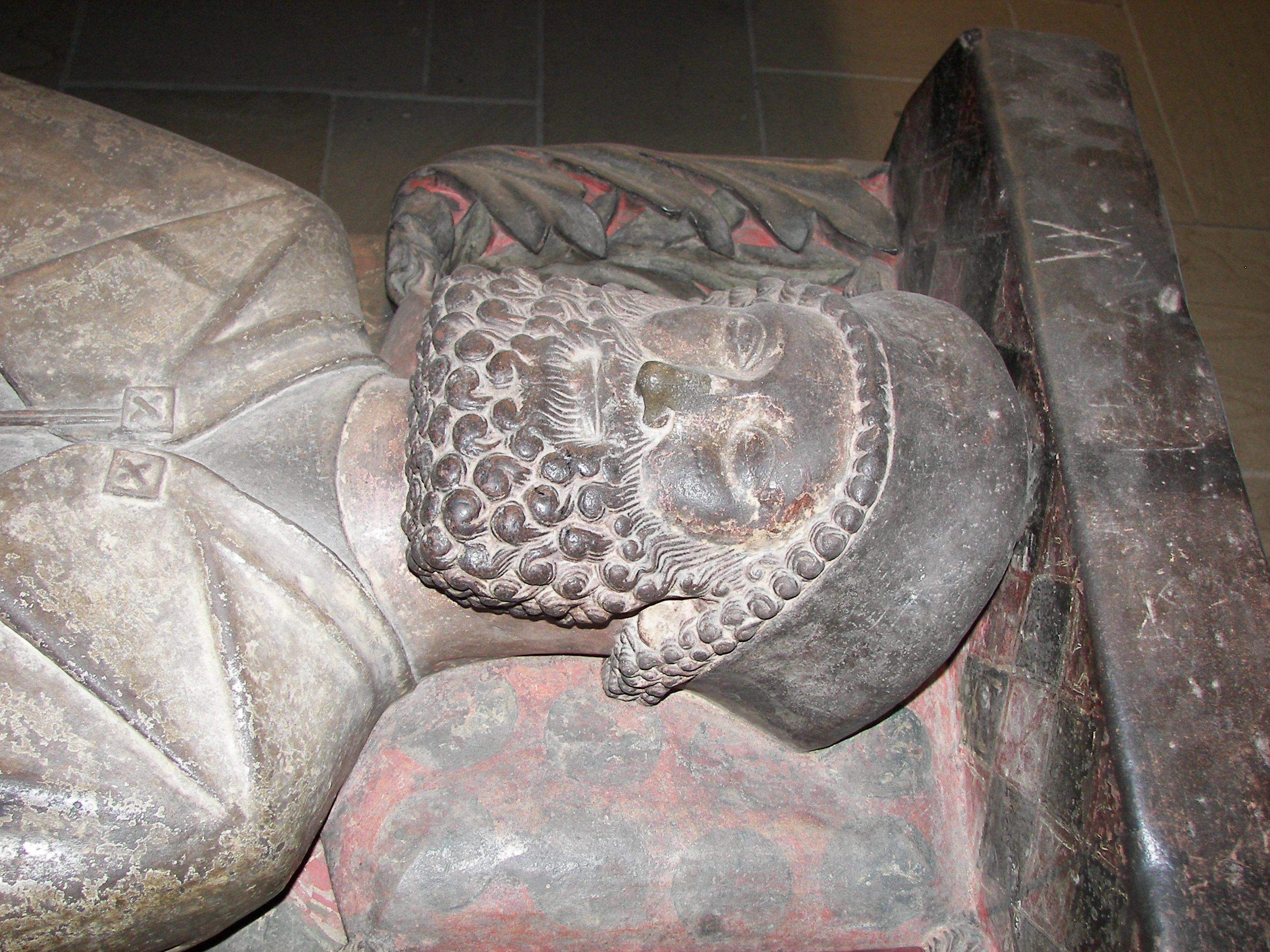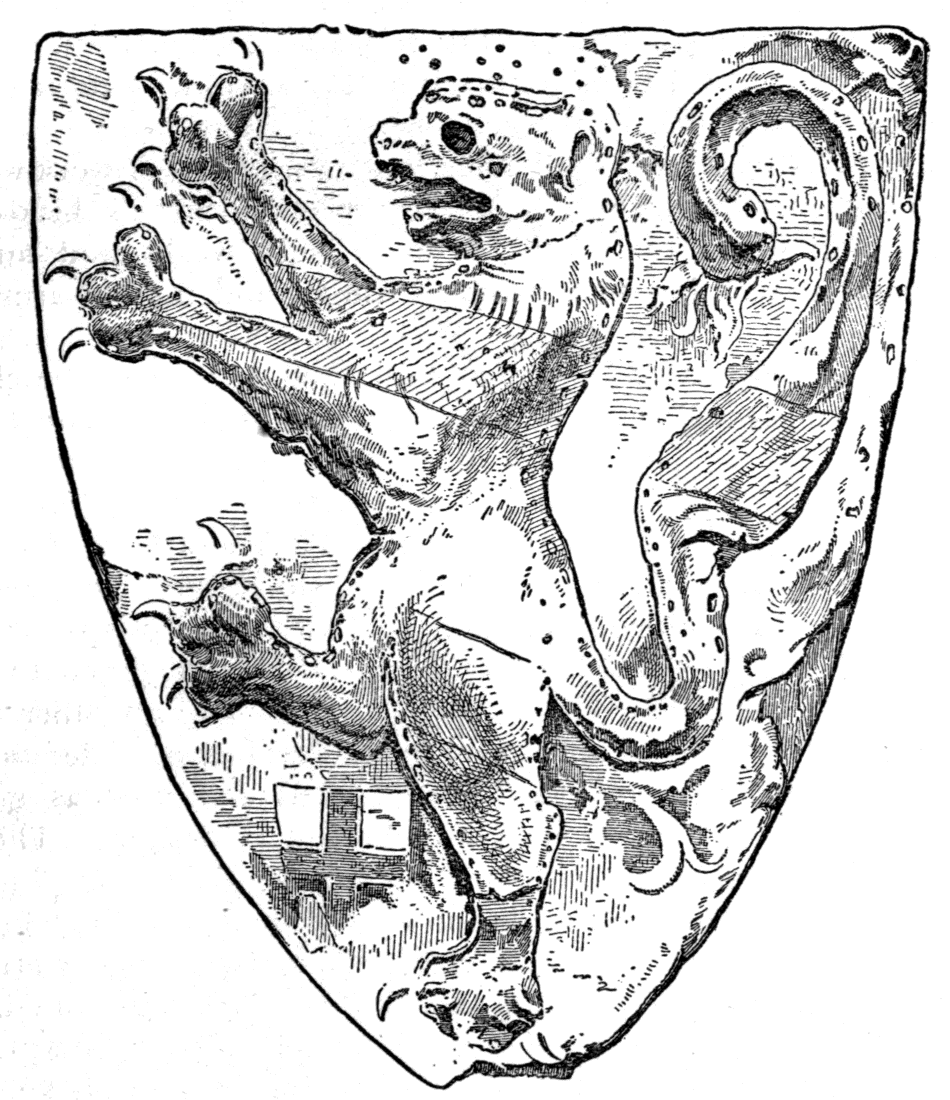Conrad Of Thuringia on:
[Wikipedia]
[Google]
[Amazon]
 Conrad (; c. 1206 – 24 July 1240) was the
Conrad (; c. 1206 – 24 July 1240) was the  Elisabeth had founded a hospital in
Elisabeth had founded a hospital in
 Conrad (; c. 1206 – 24 July 1240) was the
Conrad (; c. 1206 – 24 July 1240) was the landgrave of Thuringia
Thuringia is a historical and political region of Central Germany.
Kings of Thuringia
*500?–507 Bisinus
*507–529 Baderich
*507–525 Berthachar
*507–532 Herminafried
:''Conquered by the Franks.''
Frankish dukes of Thur ...
from 1231 to 1234 and the fifth Grand Master of the Teutonic Order
The Teutonic Order is a religious order (Catholic), Catholic religious institution founded as a military order (religious society), military society in Acre, Israel, Acre, Kingdom of Jerusalem. The Order of Brothers of the German House of Sa ...
from 1239 to 1240.Nicolaus von Jeroschin, ''A History of the Teutonic Knights in Prussia 1190-1331'', transl. Mary Fischer, (Ashgate Publishing, 2010), 120. He was the first major noble to join the military order.
Conrad was the youngest son of Hermann I, Landgrave of Thuringia
Hermann I (died 25 April 1217), Landgrave of Thuringia and (as Hermann III) Count Palatine of Saxony, called ''the Hard'', was the second son of Louis II, Landgrave of Thuringia (''the Iron''), and Judith of Hohenstaufen, the sister of Emperor ...
, and Sophia, a daughter of Otto I, Duke of Bavaria
Otto I (1117 – 11 July 1183), called the Redhead (), was Duke of History of Bavaria, Bavaria from 1180 until his death. He was the first Bavarian ruler from the House of Wittelsbach, a dynasty which reigned until the abdication of King Ludwig ...
. His elder brother Louis IV of Thuringia
Louis IV the Saint (; 28 October 1200 – 11 September 1227), a member of the Ludovingian dynasty, was Landgrave of Thuringia and Saxon Count palatine from 1217 until his death. He was the husband of Elizabeth of Hungary.
Biography
Louis wa ...
was married to Saint Elisabeth of Hungary
Elizabeth of Hungary (, , ; 7 July 120717 November 1231), also known as Elisabeth of Thuringia, was a princess of the Kingdom of Hungary and the landgravine of Thuringia.
Elizabeth was married at the age of 14, and widowed at 20. After her hus ...
. When Louis died in 1227 during the Sixth Crusade
The Sixth Crusade (1228–1229), also known as the Crusade of Frederick II, was a military expedition to recapture Jerusalem and the rest of the Holy Land. It began seven years after the failure of the Fifth Crusade and involved very little actua ...
, his brother Henry Raspe
Henry Raspe (; – 16 February 1247) was the Landgrave of Thuringia from 1231 until 1239 and again from 1241 until his death. In 1246, with the support of the Papacy, he was elected King of Germany in opposition to Conrad IV, but his conteste ...
became regent for Louis' minor son Herman II, and Conrad took on the title of Count of Gudensberg in Hesse
Hesse or Hessen ( ), officially the State of Hesse (), is a States of Germany, state in Germany. Its capital city is Wiesbaden, and the largest urban area is Frankfurt, which is also the country's principal financial centre. Two other major hist ...
, assisting his brother in ruling the area.
On Elisabeth's death in 1231, Henry Raspe took Thuringia
Thuringia (; officially the Free State of Thuringia, ) is one of Germany, Germany's 16 States of Germany, states. With 2.1 million people, it is 12th-largest by population, and with 16,171 square kilometers, it is 11th-largest in area.
Er ...
for himself, and together with Conrad, worked to consolidate power. Conrad engaged in battle a number of times with Siegfried III, Archbishop of Mainz, at one point personally swinging him around and threatening to cut him in two. In 1232, he besieged the city of Fritzlar
Fritzlar () is a small town (pop. 15,000) in the Schwalm-Eder-Kreis, Schwalm-Eder district in northern Hesse, Germany, north of Frankfurt, with a storied history.
The town has a medieval center ringed by a wall with numerous watch towers. high ...
, massacring its populace and burning the church.Nicholas Morton, ''The Medieval Military Orders: 1120-1314'', (Routledge, 2013), 95.
 Elisabeth had founded a hospital in
Elisabeth had founded a hospital in Marburg
Marburg (; ) is a college town, university town in the States of Germany, German federal state () of Hesse, capital of the Marburg-Biedenkopf Districts of Germany, district (). The town area spreads along the valley of the river Lahn and has ...
and had intended to bequeath it to the Johanniter Order
The Bailiwick of Brandenburg of the Chivalric Order of Saint John of the Hospital at Jerusalem (), commonly known as the Order of Saint John or the Johanniter Order (German: ''Johanniterorden''), is the German Protestant branch of the Knights Hos ...
, but this was rejected by her ''defensor'', Conrad of Marburg. Pope Gregory IX
Pope Gregory IX (; born Ugolino di Conti; 1145 – 22 August 1241) was head of the Catholic Church and the ruler of the Papal States from 19 March 1227 until his death in 1241. He is known for issuing the '' Decretales'' and instituting the Pa ...
sent a commission to settle the matter, and it decided in favor of Conrad of Marburg on 2 August 1232. In the summer of 1234, Conrad travelled to Rome
Rome (Italian language, Italian and , ) is the capital city and most populated (municipality) of Italy. It is also the administrative centre of the Lazio Regions of Italy, region and of the Metropolitan City of Rome. A special named with 2, ...
and convinced the Curia
Curia (: curiae) in ancient Rome referred to one of the original groupings of the citizenry, eventually numbering 30, and later every Roman citizen was presumed to belong to one. While they originally probably had wider powers, they came to meet ...
to turn the hospital and parish church in Marburg over to the Teutonic Knights
The Teutonic Order is a Catholic religious institution founded as a military society in Acre, Kingdom of Jerusalem. The Order of Brothers of the German House of Saint Mary in Jerusalem was formed to aid Christians on their pilgrimages to t ...
, which had founded a house in the city the previous year. In November, Conrad set aside his temporal title and entered the Teutonic Order himself. The next year, he joined the commission to Rome that represented his sister-in-law in the canonisation process, and he remained in the court of the Pope until Pentecost
Pentecost (also called Whit Sunday, Whitsunday or Whitsun) is a Christianity, Christian holiday which takes place on the 49th day (50th day when inclusive counting is used) after Easter Day, Easter. It commemorates the descent of the Holy Spiri ...
of 1235 when she was declared a saint.
Upon the death of Hermann von Salza
Hermann von Salza (or Herman of Salza; – 20 March 1239) was the fourth Grand Master of the Teutonic Knights, serving from 1210 to 1239. A skilled diplomat with ties to the Frederick II and the Pope, Hermann oversaw the expansion of the ...
, Conrad became the Grand Master of the Teutonic Knights.''Germany in the Reign of Frederick II'', Austin Lane Poole, The Cambridge Medieval History, Vol. IV, ed. J.R. Tanner, C.W. Previte-Orton and Z.N. Brooke, (Cambridge University Press, 1957), 102. While on a trip to Rome
Rome (Italian language, Italian and , ) is the capital city and most populated (municipality) of Italy. It is also the administrative centre of the Lazio Regions of Italy, region and of the Metropolitan City of Rome. A special named with 2, ...
in the early summer of 1240, he fell ill and died. He was buried in the Elisabeth Church in Marburg.
References
{{DEFAULTSORT:Thuringia, Conrad of 1200s births 1240 deaths Grand masters of the Teutonic Order Burials at St. Elizabeth's Church, Marburg Landgraves of Thuringia Ludovingians Sons of monarchs